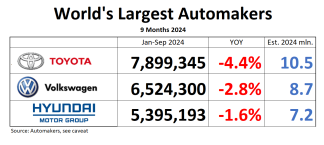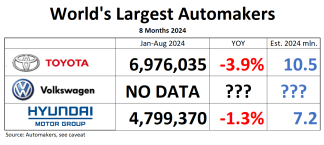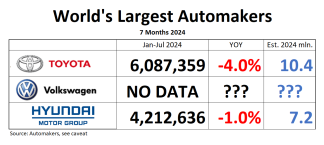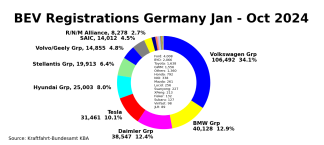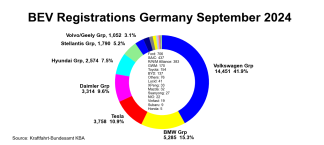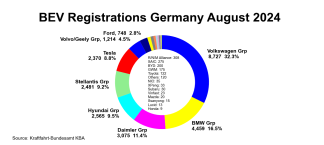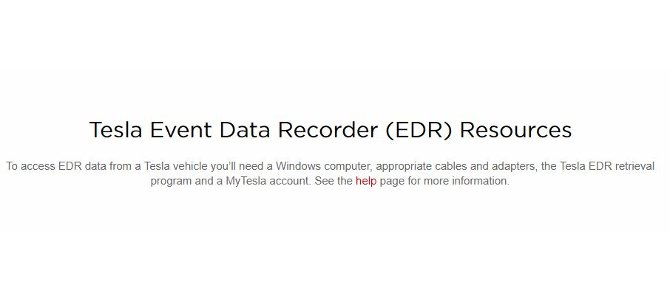
After insisting in no uncertain terms that its vehicle data recording systems are not “Event Data Recorders” (EDRs), Tesla seems to have had a change of heart. Bozi Tatarevic, who broke the first story about Tesla’s evasion of EDR regulation back in 2016, followed up today with a report pointing out that Tesla has created a new section of its website with information about what it now calls its EDR systems. As a result of this change, Tesla has made a third-party vehicle data-reading hardware tool, as well as its own retrieval software, available to the public. Daily Kanban congratulates Bozi for his continued leadership on this story, but we do feel called to lay out some context that didn’t make it into his write-up.
When he first broke the story that Tesla did not comply with the relevant regulations governing EDRs in the United States, Bozi was told by a company spokesperson that “Tesla does not have an EDR device as defined by 49 CFR 563.” At the time, that unambiguous statement seemed to be made out of legal necessity: vehicle data generated by Tesla vehicles did not belong to owners and was not readable by third-party hardware, both measures that the cited law required. It appeared that Tesla was able to get away with this practice because its data-logging system recorded data at times other than immediately before and during a crash, whereas the statutory definition of EDR in 49 CFR 563 is:
Event data recorder (EDR) means a device or function in a vehicle that records the vehicle’s dynamic time-series data during the time period just prior to a crash event (e.g., vehicle speed vs. time) or during a crash event (e.g., delta–V vs. time), intended for retrieval after the crash event. For the purposes of this definition, the event data do not include audio and video data
This interpretation has long struck us as being problematic: though Tesla’s data logging system is more than just an EDR, it does also function as an EDR. More to the point, the principles of data ownership and 3rd party readers enshrined in 49 CFR 563 and the Driver Privacy Act of 2015 are broadly applicable to any form of vehicle data recording, and are not specific to EDR. In a number of disputes with owners Tesla has been able to maintain custody of vehicle data that should belong to the vehicle owner, exercised the exclusive right to read said data and has even used it to refute owner claims in the media. Had Tesla admitted that its data logging system was an EDR, these practices would have been illegal under US law.
It is perhaps a bit ironic that, in spite of the protections of US law, the only real challenge to Tesla’s vehicle data strategy seems to have come from China. Just one week ago, in Jalopnik‘s excellent story about the battle between the family of a young man who died when a Tesla crashed into a street sweeper, an important detail hinted at Tesla’s about-face on vehicle data. It had already been reported that Tesla’s remote data-logging system had been broken in the crash that killed Gao Yaning, and that the family had taken the unusual step of denying Tesla access to the vehicle’s onboard data. In the ongoing civil suit over Gao’s death, filed by Gao’s father Jubin, a Chinese court had ordered an independent investigation. According to Jalopnik,
The formal inspection hasn’t been completed, but Jubin’s attorney, Cathrine Guo, told Jalopnik on Tuesday that Tesla’s U.S. headquarters has turned over a document that decodes data produced on a SD memory card installed in the Model S. The document, Guo said by email, recorded the actions of both the car and driver and shows that Autopilot was on at the time of the crash.
When asked for a response, Tesla referred to the spokesperson’s statement, which said: “While the third-party appraisal is not yet complete, we have no reason to believe that Autopilot on this vehicle ever functioned other than as designed.”
Tesla’s decision to turn over information needed to independently read onboard vehicle data is apparently a first for the company. There are no other documented cases where Tesla was denied access to vehicle data after a crash, so the Gao case is the only time a chain of custody kept vehicle data out of Tesla’s hands. Even in the highly-publicized Josh Brown case, in which another young man died while his Tesla was apparently in Autopilot mode, the NTSB investigation noted that
Because there is no commercially available tool for retrieval and review of the ECU data, NTSB investigators had to rely on Tesla and its proprietary software to retrieve and interpret the data.
NHTSA’s report on the incident adds more detail:
The Tesla’s SD memory card and diagnostic log data were removed by a Tesla representative prior to notification of the crash to SCI. A copy of the data was later provided to the SCI investigator for analysis purposes.
That the Gao family’s court-ordered third-party investigator was able to secure a tool with which to independently read Tesla vehicle data, when the top US auto safety investigation and regulation agencies weren’t is quite a significant development on its own. The fact that Tesla made these tools publicly available and completely changed its position on the legal status of its vehicle data logging system one week after the Gao’s legal achievement was first reported in English is downright astounding.
Obviously this change of heart is a good thing. By officially calling its vehicle data logging system an EDR, Tesla is moving into compliance with the relevant laws and giving its customers legal ownership of their vehicle data and the means to independently access it. But this about-face raises questions that are unlikely to be easily answered: why did Tesla previously insist that its vehicle data logging systems were not EDRs, and what changed their mind?
Based on the timing alone it seems safe to assume that the Gao case was the catalyst for this sudden change, but it’s important to remember that correlation is not causation. Until Tesla gives a statement on this issue, it’s impossible to say precisely why they changed their approach (NB: Tesla stopped responding to Daily Kanban‘s requests for comment some time ago). But as Daily Kanban has previously reported, Tesla’s misleading public statements about Autopilot safety were a troubling context for its secretive and unaccountable vehicle data policies. In hopes of better understanding the context for this decision, Daily Kanban has reached out to NHTSA for comment and filed a Freedom of Information Act request for any correspondence between the agency and Tesla about the legal status and definition of its vehicle data recording system. We will follow up on this story as soon as we find out more, and we encourage our friends in the media to reach out to Tesla in hopes of obtaining a statement that might resolve this mystery.
